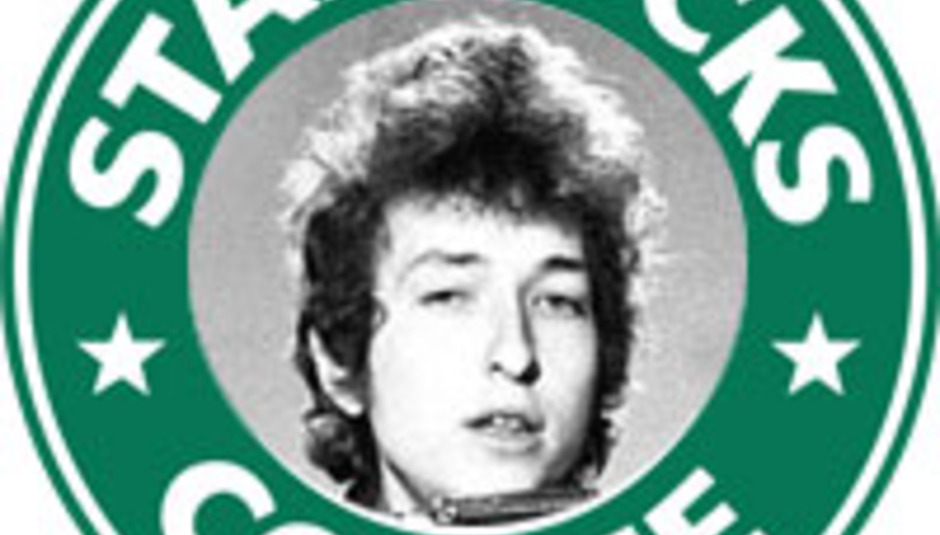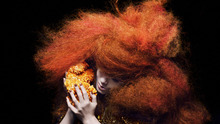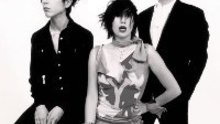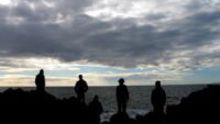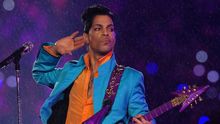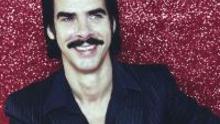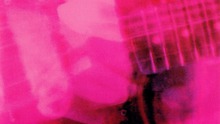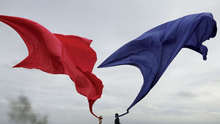“Mixing pop and politics, they ask me what the use is. I offer them embarrassment and my usual excuses.”
“This one’s for George Bush,” they implore, jet-black hair probably swept to one side and clad in a hoodie even though it’s really hot on stage, tight jeans bracketed by two belts and a guitar slung to the back like the fashion accessory it has become. A couple of years ago, just before Bush won his first democratic election, you couldn’t go and watch an American band without having them exhorting you to vote; ridiculously, as if they’d forgotten which side of the Atlantic they were currently on. The Guardian ran a campaign where readers would write begging letters to voters who classed themselves as ‘undecided’ in the States, asking them to vote Democrat, surely one of the most patronising and insulting initiatives ever proposed by a respectable newspaper. English kids in big shorts wore T-shirts with ‘Not My President’ emblazoned on them in startling displays of obviousness.
Politics seemed to be at the forefront of pop music but as Live8 overshadowed the real protests at the Edinburgh G8, the musical community seemed to collectively shrug its shoulders at the idea of a mass movement. Of course, smaller charities such as Love Music, Hate Racism, Shelter and now Jail Guitar Doors have traditionally been associated with musicians who continue to support their causes, but what happened to real protest songs that galvanised the entire nation? Or is that a rose-tinted look back at the past?
[A disclaimer of sorts: while this article is about protest music it is not attempting to provide a full and coherent analysis of its roots. You will find little mention of folk music here, even though it is the forerunner of the political movement espoused by various punk artists and this is not an examination of every band that has written a political song. Rather, it is looking at protest music’s relationship with the mainstream and its place in musical society today.]
“Look at Rage Against the Machine,” says Frank Turner, former Million Dead frontman and now solo artist with a history of being called a protest singer (more on this later). “People stopped paying attention to their music very quickly because most people were on a mission to catch them out not walking the walk, which totally missed the point because Evil Empire pisses over the first album.
“They were a very radical band and you can give them a fair amount of props because they did about as much as any band can in mixing music and politics and making people, myself included, try and investigate things a bit further. But at the end of the day they got turned into a ruthless T-shirt selling machine and probably their biggest legacy is going to be loads of kids singing “Fuck you, I won’t do what you tell me!”
Turner strongly resists the tag of protest singer because of the tendency of the music-listening population at large to instantly marginalise anyone espousing political views. Bob Geldof could be spearheading the most important, radical and attainable social initiatives in recent times but it wouldn’t matter, because the majority of people would immediately think “What’s that rich twat babbling on about now?” without bothering to listen closely. Nowadays, protest music is either reduced to the margins of being a gimmick or a tiny niche.
Video: Billy Bragg - ‘Between the Wars’
- - -
But it wasn’t always the case. It’s not that great a leap to say that much modern socially-conscious music stems from Woody Guthrie. To put it in the words of Billy Bragg, a man whose name is now synonymous with the idea of political engagement in music: “We’re all part of a tradition – we're all inspired by The Clash, and The Clash were inspired by Woody Guthrie, so it's all part of the same chain, trying to make music that makes a difference. We didn't want to just be pop stars again, so we formed Red Wedge to try and keep the Tories out of the next election.
“It must sound strange nowadays to hear of pop stars trying to help the Labour Party, but at the time it was very different. Britain was a different country, and there was a huge ideological difference between the two parties.”
Red Wedge was perhaps the last time a social movement got involved in pop music without being subsumed by a huge corporate machine. Formed in the run up to the 1987 General Election and with the whirlwind background of the Miner’s Strike pitching the working class against Thatcher, who even said, famously, in 1987 “There is no such thing as society”, it was a collection of musicians who simply wanted the Labour Party back in power. After futilely campaigning (The Tories won in ’87) it slowly disintegrated, leaving British pop music in the hands of apolitical Madchester.
Sam Duckworth, aka Get Cape. Wear Cape. Fly, is another young bloke with a guitar who has consciously made the effort to bring a political agenda to the table.
“I don’t think the youth of today have a political conscience, and that’s why it’s not reflected in pop music. If you look back to the ‘70s with The Clash, then the ‘80s with The Specials and The Jam [as part of Red Wedge, alongside Billy Bragg among others], mixing punk rock and politics was so socially acceptable that bands who didn’t have a political conscience would try to get involved to give themselves some credibility.
“A lot people do care about the society they live in and as soon as it becomes credible again to hold these views then people are going to get involved and start speaking with a political voice.”
Turner again: “I think that music with a certain message is going to have an impact when it chimes with current events. Billy Bragg worked because he was soundtracking the Miner’s Strike, and now the idea of trying to expand other people’s minds or saving the world is that it gets very presumptuous very quickly. Standing there and saying ‘I’m going to overthrow the government for the workers of the world’…have you asked the workers of the world about this? Do they want their government overthrown? Probably not.”
But it’s not quite as simple as saying there aren’t enough bands speaking out about politics. When The Cribs attacked poser indie bands back in July they were opening a can of worms because, as Turner says, “I think the music industry has got very, very good at co-opting things into marketable commodities. After the experience of punk rock getting subsumed into the music industry, it is increasingly difficult to say something and have an impact.”
It’s hard to escape the idea that The Clash were a one-off, and that some guy with a guitar shouting about left-wing politics is just irrelevant.
“I sing about my views on a particular situation, I’m absolutely not going to fucking start saying I have the answers about anything or telling anyone how to live their lives,” says Turner.“I wouldn’t say that songs have no place in social change, but there seems to be this populist conception that songs can change the world and I think that’s exceedingly naïve.
“The most extreme example of music and politics being linked together has got to be the 60s but that was a case of music soundtracking something. The idea that Bob Dylan and friends were more important in social advancement than the actual change between the war generation and the post-war generation strikes me as a bit silly.”
Video: Frank Turner: ‘Thatcher Fucked the Kids’
- - -
Lest we forget, every musician making even a cursory living from playing music is in a fantastically privileged place. No one is saying that it’s necessarily easy, but it’s far less of a struggle than getting up at the crack of dawn every day and slogging away in a thankless job – why should any one take any notice of someone living the sheltered existence of tour buses, royalty cheques and 40 minutes of work every day? Blanket broadband access allows everyone within reach of a computer to have a potential global reach of millions without doing anything more radical than holding up a camera at arms length and taking a picture of your own cleavage, and society has [d]evolved to the point where it’s possible to be famous simply for having lots of friends on MySpace.
The sorely-missed comic Bill Hicks springs to mind: “Go to bed, America!” he would rant, “Go to bed! Your Government is in control! You have 13 channels of American Gladiators to watch, there is no need to think!” Now, more than ever, it seems like he has a point – why march on Parliament if we can just change our Facebook status? Glib, yes, but where we used to have town halls to meet and discuss our views we now have the instant convenience of internet forums. Turnout in the 2005 General Election was 61 per cent - almost four people in ten don’t give enough of a shit about the way the country is run to even draw a big cock and balls on the ballot paper or is indeed disillusioned enough to just stay at home.
There could be a final reason for the supposed death of the populist protest singer: being tagged as one means that an artist is no longer simply a musician. “My personal rejection of the tag ‘protest singer’ is because at the end of the day, I’m a musician and I’m trying to write songs and lyrics. The problem with that tag is that it becomes an albatross from day one, people are immediately looking at what you’ve got to say rather than what you’ve got to play.
“If politics was my focus, I’d be a politician, and I want people to listen to my music,” says Turner.
“Music is a tool to alleviate the essential awfulness of life. At the end of the day, a song like ‘Thatcher Fucked the Kids’ is a song, it’s not a speech,” he continues. “My view of life is that it’s not a particularly pleasant or enjoyable experience and it’s all about finding little experiences that make it worthwhile, like finding empathy through art. I get pissed off about the state of the world too, but the other night I stayed up really, really late with my mate after his new club night, took some jellies, listened to the Hold Steady and laughed a lot. And that was great, that was a small victory.”
What is clear is that there’s no shortage of artists singing songs about real things rather than simply getting leathered and how great it feels to be in The Twang. Spurred on by the continuing elephantine success of the Arctic Monkeys, pop songs increasingly focus on the incessant crapness of day to day life without expanding their scope and it appears as if the media constantly seeks to marginalise those that do wish to bring a more political agenda to the table.
We live in a society where, in the words of Frank Turner, “people wring their hands over the publication of more Diana pictures but cunts still buy OK! every week”, and where it’s simply more convenient to not mix pop and politics. The musicians don’t want to do it because they’ll never escape the millstone that is immediately grafted around their necks and the vast majority of the music-buying public simply doesn’t care.
Or have protest singers simply served their time in an era where, if Bob Dylan said something, it echoed around the globe? We don’t need someone with a guitar telling us what to think because we’re all empowered – you’re probably reading this on a broadband connection with a Facebook or MySpace account, or another ‘blog, and that means that there is the possibility of billions of people reading what you have to say. Unfortunately, the current side-effect is that of complacency, but you never know. People might get fed up of the shit that’s shovelled onto us in the guise of popular entertainment and start asking for more. Maybe.

